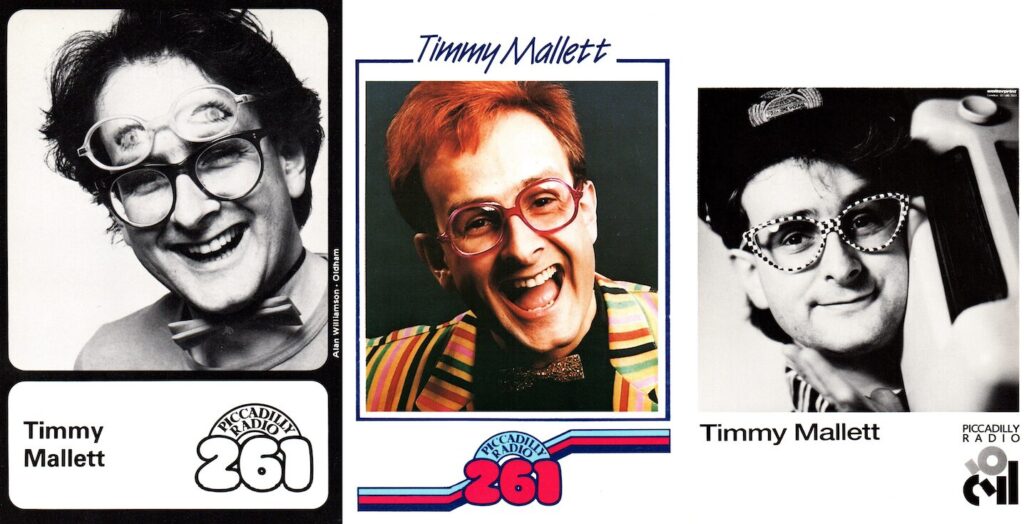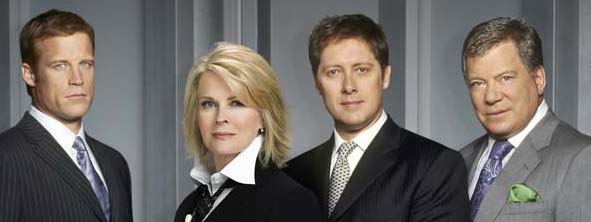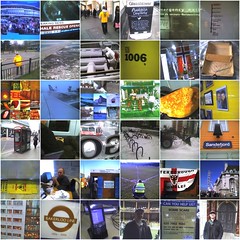Where are you reading this? Are you sat in an office or at home? Do you have the television on in the background or the radio in your ears? Maybe you’re mobile in some way? Is it a laptop in a coffee shop or are you on a train? Wherever you are, if you’re reading this you are connected to the the vast web of information, you know all the good stuff on the internet and all the bad stuff the news channels make up.
But you are also connected to a vast web of advertising. Switch on your TV, change your radio chhanel, look out of the window, open the magazine or surf along to my employer’s web page. You see advertising everywhere.
There was a survey once, that I can’t find right now, that counted how many advertisments an average person was exposed to in a normal day. Who’s average? What’s normal? Perhaps they just made up a number. But it was a big number. Quite big. Maybe very big, but – as I said – I can’t find it. Nevertheless, you don’t need a nice lady with a clipboard to tell you that you see a lot of advertising, because you know that, don’t you? From my recollection, it was all the advertising that you come across that you don’t remember seeing that was the interesting point of that survey
Anyway, as I can’t find it, there’s no point talking about it, right? I can summarise the last three pargraphs like this: there’s a lot of advertising everywhere.
I’ve had a fascinating couple of weeks, talking to some very smart people building some – on paper – interesting new online products. We talk about how to interegrate a range of advertsing options into these products. Â See how much I’m giving away. Lawyers scare me. I’m saying no more about them.
What’s been clear for a couple of years now is that everybody, from big corporations to small start-ups, is convionced that they can monetise their ideas with advertising. Advertising is, apparetly, going to pay for everything. If you fall into the right demographic, your mobile phone will be paid for if you listen to a few ads. By-the-way, if you don’t want a moile phone paid for by advertising that’s fine. Some people, however, would love not to pay a penny to speak to their friends.
And there are three problems with this approach to product development and innovation. Firstly, many people who think their prodct or service is attarctive to advertisers haven’t actually thoguht about how the advertising experience will work. It’s a kind of approach that says, our product is great, people will love it, people will use it and advertisers will come.
Hey, consumers will have to really love it and come in droves. There aren’t many products that have acieved that level of attention where advertisers know they have to be there. Facebook is a nice exception that springs to mind.
Secondly, if advertising is going to be central to your proposition then make it central to your product development plans. Over the years I’ve seen too many great products have advertising added in as an after thought. And it rarely works. This needs to the be subject of another piece but please take the advice now and read a later post when I get round to writing it.
Thirdly, all these advertisers who will come have limited budgets. They can’t place ads everywhere. Your audience has to be very compelling to move budgets. Logic tells me that there is a point when advertising won’t pay for products and services any more. Should this stop your development? Absolutely not. We move on by innovation. But if your product is to stand a chance of making it seriously evaluate the advertising proposition. Then cut the expected revenue by 80%. Then work out how to fund the gap.
I do think the digital space has an advantage here. Increasingly, money is moving into the digital advertising arena from other media. So if you’re new idea is digital and – importantly – you’ve thought through the advertisng model and – most importantly – you’ve worked how the advertising experience with your product (from user and advertiser sides) then you may see advertising as a funding source but I don’t think your advantage is huge.
So here’s my appeal. Wherever you sit in product or service development, on or off-line, think about how advertising will be integrated and put it at the heart of your development plans. It’ll pay, in more ways than just with revenue, in the long run.
Where are you reading this? Are you sat in an office or at home? Do you have the television on in the background or the radio in your ears? Maybe you’re mobile in some way? Is it a laptop in a coffee shop or are you on a train? Wherever you are, if you’re reading this you are connected to the vast web of information, you know all the good stuff on the internet and all the bad stuff the news channels make up.
But you are also connected to a vast web of advertising. Switch on your TV, change your radio channel, look out of the window, open the magazine or surf along to my employer’s web page. You see advertising everywhere.
There was a survey once, that I can’t find right now, that counted how many advertisements an average person was exposed to in a normal day. Who’s average? What’s normal? Perhaps they just made up a number. But it was a big number. Quite big. Maybe very big, but – as I said – I can’t find it. Nevertheless, you don’t need a nice lady with a clipboard to tell you that you see a lot of advertising, because you know that, don’t you? From my recollection, it was all the advertising that you come across that you don’t remember seeing that was the interesting point of that survey.
Anyway, as I can’t find it, there’s no point talking about it, right? I can summarise the last three paragraphs like this: there’s a lot of advertising everywhere.
I’ve had a fascinating couple of weeks, talking to some very smart people building some – on paper – interesting new online products. We talk about how to integrate a range of advertising options into these products. See how much I’m giving away. Lawyers scare me. I’m saying no more about them.
What’s been clear for a couple of years now is that everybody, from big corporations to small start-ups, is convinced that they can monetise their ideas with advertising. Advertising is, apparently, going to pay for everything. If you fall into the right demographic, your mobile phone will be paid for if you listen to a few ads. By-the-way, if you don’t want a mobile phone paid for by advertising that’s fine. Some people, however, would love not to pay a penny to speak to their friends.
And there are three problems with this approach to product development and innovation. Firstly, many people who think their product or service is attractive to advertisers haven’t actually thought about how the advertising experience will work. It’s a kind of approach that says, our product is great, people will love it, people will use it and advertisers will come.
Hey, consumers will have to really love it and come in droves. There aren’t many products that have achieved that level of attention where advertisers know they have to be there. Facebook is a nice exception that springs to mind.
Secondly, if advertising is going to be central to your proposition then make it central to your product development plans. Over the years I’ve seen too many great products have advertising added in as an after thought. And it rarely works. This needs to the be subject of another piece but please take the advice now and read a later post when I get round to writing it.
Thirdly, all these advertisers who will come have limited budgets. They can’t place ads everywhere. Your audience has to be very compelling to move budgets. Logic tells me that there is a point when advertising won’t pay for products and services any more. Should this stop your development? Absolutely not. We move on by innovation. But if your product is to stand a chance of making it seriously evaluate the advertising proposition. Then cut the expected revenue by 80%. Then work out how to fund the gap.
I do think the digital space has an advantage here. Increasingly, money is moving into the digital advertising arena from other media. So if your new idea is digital and – importantly – you’ve thought through the advertising model and – most importantly – you’ve worked how the advertising experience with your product (from user and advertiser sides) then you may see advertising as a funding source but I don’t think your advantage is huge.
So here’s my appeal. Wherever you sit in product or service development, on or off-line, think about how advertising will be integrated and put it at the heart of your development plans. It’ll pay, in more ways than just with revenue, in the long run.
Disclaimer: the views here are my own and are not necessarily the opinions of my employer. You have read the full disclosure, haven’t you?





